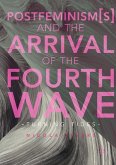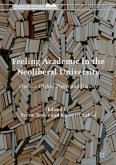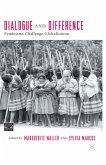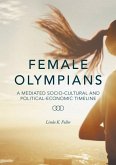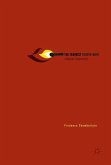This volume approaches questions about gender and the politics of appearance from a new perspective by developing the notion of aesthetic labour. Bringing together feminist writing regarding the 'beauty myth' with recent scholarship about new forms of work, the book suggests that in this moment of ubiquitous photography, social media, and 360 degree surveillance, women are increasingly required to be 'aesthetic entrepreneurs', maintaining a constant state of vigilance about their appearance. The collection shows that this work is not just on the surface of bodies, but requires a transformation of subjectivity itself, characterised by notions of personal choice, risk-taking, self-management, and individual responsibility. The book includes analyses of online media, beauty service work, female genital cosmetic surgery, academic fashion, self-help literature and the seduction community, from a range of countries.
Discussing beauty politics, postfeminism,neoliberalism, labour and subjectivity, the book will be of interest to scholars and students with an interest in Gender, Media Studies, Cultural Studies, Sociology, Social Psychology and Management Studies.
"This highly engaging, smart, and wide-ranging collection analyzes how, under the self-governing mandates of neoliberalism, the demands that girls and women regulate and control their bodies and appearance have escalated to new, unforgiving levels. A special strength of the book is its emphasis on the rise of 'aesthetic labour' as a global, transnational and ever-colonizing phenomenon that seeks to sweep up women of all races, ages and locales into its disciplinary grip. Highly recommended."
-Susan J Douglas, University of Michigan, USA
the inherited responsibility that remains women's particular burden to manage."
-Melissa Gregg, Intel Corporation, USA
"This book incisively conceptualizes how neo-liberalist and postfeminist tendencies are ramping up pressures for glamour, aesthetic, fashion, and body work in the general public. In a moment when YouTube 'makeup how to' videos receive millions of hits; what to wear and how to wear it blogs clock massive followings; and staying 'on brand' is sold to us as the key to personal and financial success, 'aesthetic entrepreneurship' is bound to become a go-to concept for anyone seeking to understand the profound shifts shaping labor and life in the 21st century."
-Elizabeth Wissinger, City University of New York, USA
Discussing beauty politics, postfeminism,neoliberalism, labour and subjectivity, the book will be of interest to scholars and students with an interest in Gender, Media Studies, Cultural Studies, Sociology, Social Psychology and Management Studies.
"This highly engaging, smart, and wide-ranging collection analyzes how, under the self-governing mandates of neoliberalism, the demands that girls and women regulate and control their bodies and appearance have escalated to new, unforgiving levels. A special strength of the book is its emphasis on the rise of 'aesthetic labour' as a global, transnational and ever-colonizing phenomenon that seeks to sweep up women of all races, ages and locales into its disciplinary grip. Highly recommended."
-Susan J Douglas, University of Michigan, USA
the inherited responsibility that remains women's particular burden to manage."
-Melissa Gregg, Intel Corporation, USA
"This book incisively conceptualizes how neo-liberalist and postfeminist tendencies are ramping up pressures for glamour, aesthetic, fashion, and body work in the general public. In a moment when YouTube 'makeup how to' videos receive millions of hits; what to wear and how to wear it blogs clock massive followings; and staying 'on brand' is sold to us as the key to personal and financial success, 'aesthetic entrepreneurship' is bound to become a go-to concept for anyone seeking to understand the profound shifts shaping labor and life in the 21st century."
-Elizabeth Wissinger, City University of New York, USA
"This collection offers a fascinating and nuanced discussion of the work that "being pretty" demands under contemporary neoliberalism. Most crucially, the reading is compelling and never gets monotonous. The text is a significant addition to a flood of scholarship on aesthetic labour, and this volume is required reading for anybody, from students to specialists, interested in contemporary body politics, whether from a feminist, beauty or neoliberal perspective." (Amelie Keyser-Verreault, Anthropologica, Vol. 60 (2), 2018)




